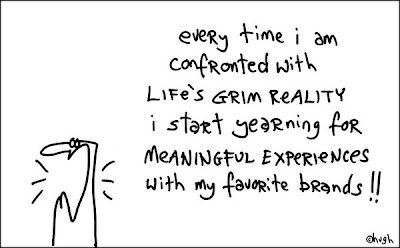talent.
I have a Hotmail address that includes the word "talent" in it. I'm not going to broadcast the story of how this address came to be simply because the entertainment to embarrassment ratio is far too low. Regardless, every time I give this address out over the phone or in person to someone, it makes me think about the word "talent" before I think about the genesis of the address. I think 'does this person think I'm full of myself because I have the word "talent" in my address?' Then, I think 'do I deserve to have this word in my email address?'
talent.
Talent is a funny thing. Being talented in something is a product of chance, practice, both, and neither. By chance, you can be a talented writer. By practice, you can be a talented basketball player. By both, you can be an inspirational painter. By neither, you could have the potential for something within you and never even know. Talent is born and built and wasted and ignored.
talent.
In the past couple of days, I've talked to two very talented people. These are people that I have a lot of respect for and whose work I am amazed by. The talent they both display is fascinating to experience though each of them have very different talents that exist at very different cultivation levels.
talent.
One is both accomplished in his field and an expert at human interaction. He is, thankfully, writing a book which, if the universe is fair and just, should sell a million copies. He is a family/marriage counselor by trade who happens to be the most insightful person I know when it comes to humans interacting with each other. He can say very, very little while telling you more than anyone has ever told you before. This is what he told me (personally) about talent (this is not a direct quote; I'm paraphrasing):
Use who you know and what you know to do what you need to do. Sometimes we think that we need to do everything and know everything ourselves but that is not how you get done what needs to be done. Leverage your talent to build relationships and use these relationships to reach your goals. When you try to do everything at once, you get bogged down in the details. You need to find the people that can help you the most and use their talent to help you.
What do you think?
talent.
The other person I talked to about this is a musician with an international fan base and an album coming out soon. I'm really not sure exactly long he has been making music but I can assume that it's been at least a decade. Having a conversation with him is a pleasure because he's both very smart and very knowledgeable and does everything he can to make sure he speaks his mind as clearly as possible. He's political, musical, socially-conscious, sans both a driver's license and a cell phone (OMG, can you imagine?? LOL), and a great person to talk to about talent.
We got on the subject of someone he knows that is a talented videographer. Hearing someone like him talk about someone he respected made me want to ask him how he handles others with talent. I asked him, essentially, how he feels when he is around talent that is potentially greater than his own? He had this to say (again, paraphrased):
I just like to be around talent, be the nexus of talent around me. I like to be around people who are more talented than me because I can learn from it. Having talented people around me makes me work harder and do more, not to compete but because I have more resources
Intrigued, I dug a little deeper. He clearly has a talent that he has no choice but to follow. How does it feel to have a talent and a passion you can't deny?
I'm not sure it's all that great. I'm stuck doing this whether I want to or not. Trying to be a rock star and making an impact on pop culture is a curse, really. I don't have anything that's marketable, I'm basically a starving artist. Either I make an album that works and appeals to people or I fail; those are my two options. I'm always facing failure no matter what I do. There is a stigma to being creative, I don't really have a marketable skill. If this doesn't work, then what? If I fail, people can look at me and say 'silly boy, of course you don't do that, you'll never get anywhere in music."
talent.
Talent is a blessing and talent is a curse. Talent ties you up and talent sets you free. Talent pays the bills and talent drains your savings account.
So what is universal about talent? Talent only gets better with practice and focus. Talent makes you popular if you let it. Talent is knowing when to use your talent and when to use someone else's talent. Talent gets better in the presence of complementary talent. Talent comes to you, it finds you. Talent is finding your own flow, tapping into something that's bigger than yourself. Talent won't guarantee your happiness and talent won't guarantee your income.
Your talent is bigger than you, it's bigger than what you can create or fix or destroy. Still, the talent that you have inside of you is yours to use or yours to ignore. Not everyone who finds and exploits their talent will end up with what they wanted or thought they deserved out of life. What they will do, always, is inspire and amaze and cause people to think if they let that talent out into the world. Human ability appears limitless in it's depth, breadth, and scope. Even if you don't or won't find it in yourself, talent has the ability to affect you in fascinating ways.
talent.








.jpg)
.jpg)



.bmp)
